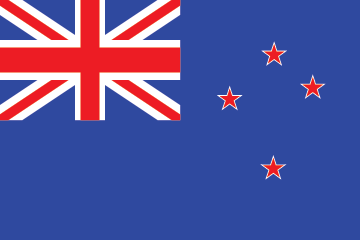
Compulsory Education Age
6–15 (inclusive)
Legal Status
Home education is legal as long as home educators file a statement of intent with the Ministry of Education in order to obtain a Certificate of Exemption from the compulsory attendance law.
For students in isolated locations, at home recovering from illness, traveling overseas, or temporarily unable to attend their local school, Te Kura, the Correspondence School, provides teaching in both English and te reo Māori from early childhood to Year 13. The curriculum is provided through various electronic means and, when possible, includes face-to-face opportunities for students to get to know their learning advisors and liaison teachers. Te Kura also accepts dual enrollments, where a student enrolled in another school can take an option not available at their local school.
Originally set up in 1922 to cater for the most isolated students, by 2009, it had about 4000 full-time students and 11,000 dual enrollments. These also included teen parents, students excluded from school, students attending regional health schools and students with special education needs. Te Kura is a state-funded school and is reviewed by the Education Review Office. Te Kura is free for 16- to 19-year-olds.
As it is compulsory for students between the ages of 6 and 15 to be enrolled in a school, it requires an exemption from the Ministry of Education to educate students at home. In July 2017, over three thousand families took up this option, educating more than six thousand students from home. The reasons included dissatisfaction with the formal schooling system, religious or philosophical beliefs, or concern for children’s safety (for example, from bullying). The requirement for exemption is quite open, although the forms require detail about the proposed curriculum, timetable, and teaching space. Parents must satisfy the Secretary of Education that their child will be taught “as regularly and as well as in a registered school.” The Ministry of Education issues exemption certificates and advises the Education Review Office that these students are being home educated.
ERO undertakes occasional reviews to ensure that students are receiving an education appropriate to their needs and that they are not being disadvantaged by being educated at home. Parents are required to update their home educating intentions every six months. A small supervisory allowance is available until the end of the year that the child turns 19, which can be spent on anything at the parents' discretion. Students can take two Te Kura courses without losing the supervisory allowance.
Contact Information
Home Education Foundation
Website: www.hef.org.nz
Additional Resources
Covid-19: New home-schooling surge after mask mandate surprises principals
Principals say some parents are threatening to take their children out of school because of the mask mandate for older primary school children.
A Chance at Self-discovery Through Homeschooling
Flexibility and the prospect of customizing an education appeal to these New Zealand homeschooling families, according to local media.
Popularity for Homeschooling Growing in New Zealand
“It's about just having more time with my children,” this homeschool mom told a local newspaper. “More time to play with their friends, more time to delve really deeply into their hobby.”
New Zealand Home Education Statistics
See the numbers from 1998 to 2017.

